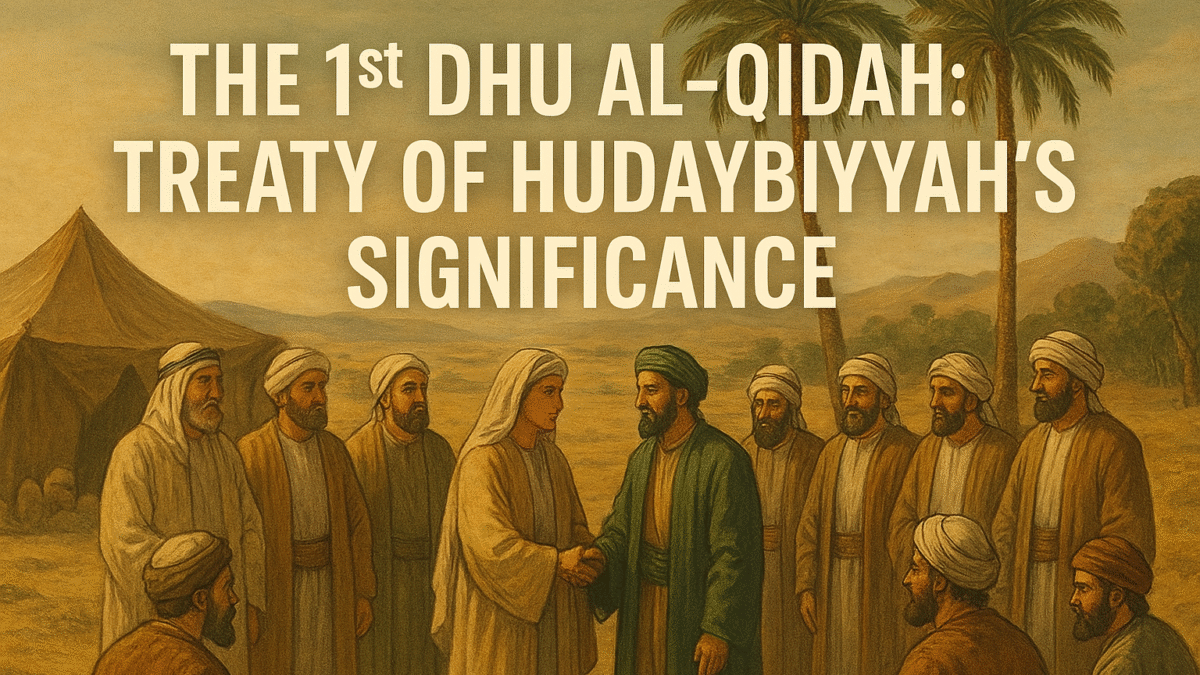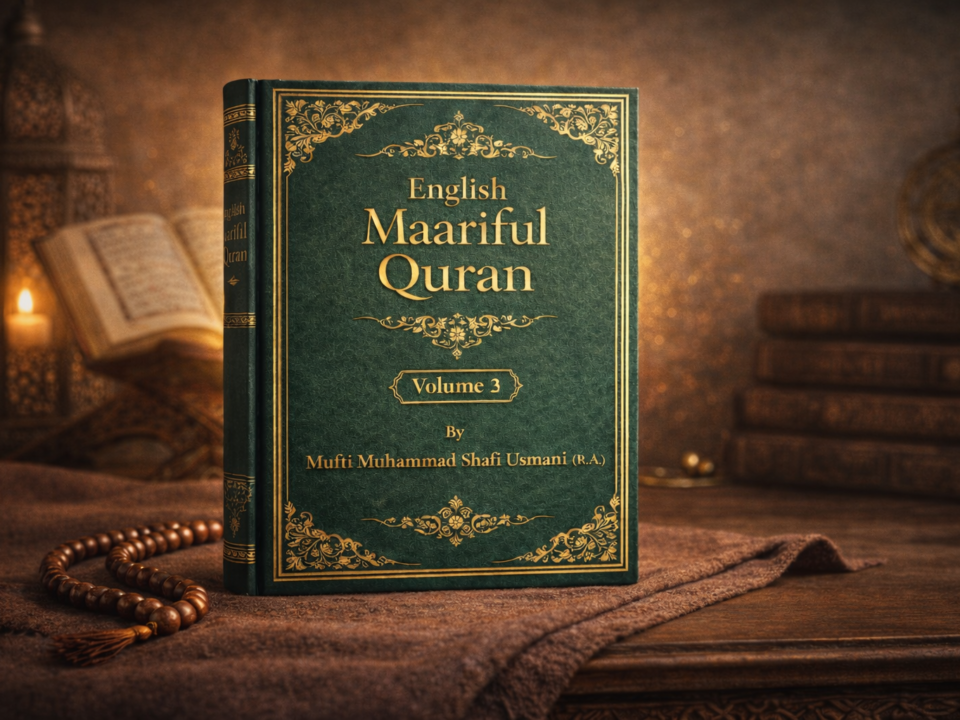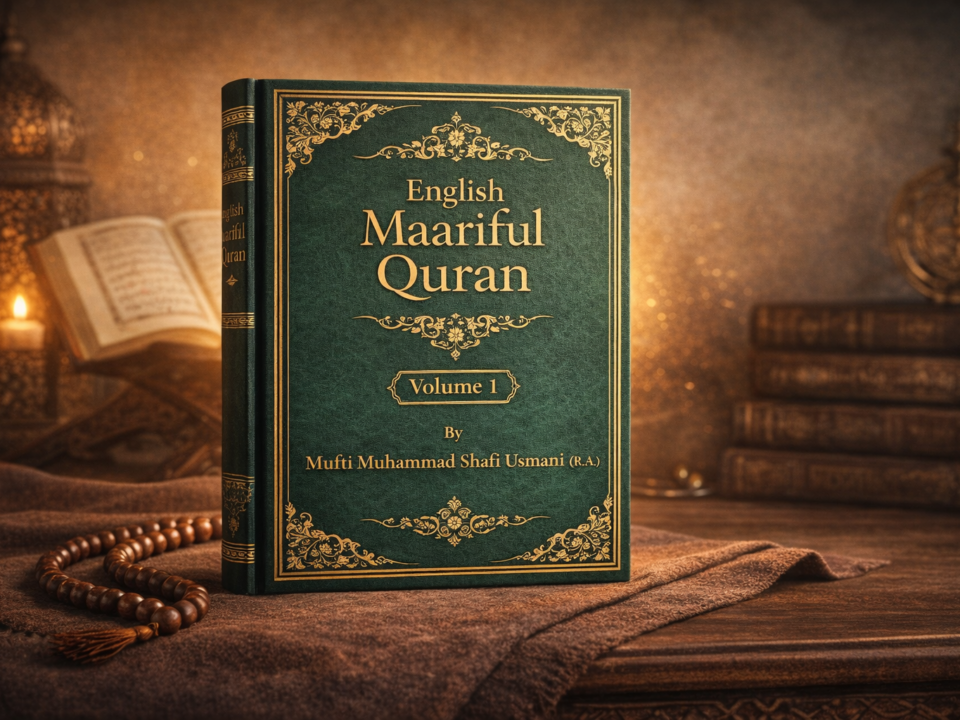The 1st Dhu al-Qidah: Unraveling the Significance of the Treaty of Hudaybiyyah
Introduction
The 1st Dhu al-Qidah marks a significant event in Islamic history – the Treaty of Hudaybiyyah. This pivotal moment not only altered the course of Islamic expansion but also holds valuable lessons for us today. In this blog post, we’ll explore the historical context, key players, and the enduring lessons of the Treaty of Hudaybiyyah.Historical Background
The Treaty of Hudaybiyyah took place in the 6th year of the Islamic calendar (628 CE). At that time, Prophet Muhammad and his followers, known as the Muslims, were in Mecca, facing persecution from the Quraysh tribe, who controlled the city. The Muslims yearned to visit the Kaaba, Islam’s holiest site, but the Quraysh denied them access.Negotiations Begin
In an attempt to reach a resolution, the Prophet Muhammad decided to embark on a peaceful journey to Mecca for Umrah (a lesser pilgrimage). Accompanied by around 1,400 Muslims, the Prophet set out from Medina. The Quraysh, fearing a potential conflict, sent negotiators to intercept the Muslims at Hudaybiyyah, a location near Mecca.Key Players
- Prophet Muhammad: The leader of the Muslim community and the primary negotiator on behalf of the Muslims.
- Abu Sufyan ibn Harb: A prominent leader of the Quraysh who played a significant role in the negotiations.
- Ali ibn Abi Talib: The cousin and son-in-law of Prophet Muhammad, who served as the scribe during the treaty negotiations.
Terms of the Treaty
- After several rounds of negotiations, the Treaty of Hudaybiyyah was finalized with the following key terms:
- A Ten-Year Peace: Both parties agreed to a ten-year truce, during which there would be no hostilities between the Muslims and the Quraysh.
- No Umrah in 628 CE: The Muslims would not perform Umrah that year but could return the following year.
- Safe Passage: Muslims were allowed to travel to Mecca for Umrah without fear of persecution.
- Mutual Alliances: Both the Muslims and the Quraysh were permitted to form alliances with other tribes, furthering the principle of non-interference.
Takeaway from the Treaty of Hudaybiyyah:
- Patience and Wisdom: The Prophet Muhammad’s decision to engage in peaceful negotiations rather than confront the Quraysh militarily demonstrates the importance of patience and wisdom in resolving conflicts.
- Trust in Divine Plan: The apparent setbacks and concessions made by the Muslims in the treaty showed their trust in the divine plan. Eventually, the treaty led to the peaceful conquest of Mecca in 630 CE.
- Diplomacy and Compromise: The Treaty of Hudaybiyyah highlights the value of diplomacy and compromise in resolving disputes, even when the terms may seem unfavorable in the short term.
- Persistence and Perseverance: Despite facing obstacles and adversity, the Muslims persevered in their pursuit of justice and their faith.
Conclusion
The Treaty of Hudaybiyyah is a testament to the power of peaceful negotiations, patience, and unwavering faith. It turned a seemingly unfavorable situation into a strategic victory for the Muslim community and paved the way for the peaceful conquest of Mecca. In today’s world, the lessons from this historic event remind us of the importance of diplomacy, compromise, and trust in the divine plan in resolving conflicts and achieving long-term goals. The 1st Dhu al-Qidah and the Treaty of Hudaybiyyah serve as enduring examples of how steadfastness and wisdom can triumph over adversity.Quraan.pk reflects on the Treaty of Hudaybiyyah signed on 1st Dhu al-Qidah, a pivotal moment in Islamic history that promoted peace, patience, and unity among Muslims.عنوان: یکم ذی القعدہ: حدیبیہ کے معاہدے کی اہمیت کو واضح کرنا
تعارف
یکم ذی القعدہ اسلامی تاریخ کا ایک اہم واقعہ ہے – معاہدہ حدیبیہ۔ اس اہم لمحے نے نہ صرف اسلامی توسیع کا راستہ بدل دیا بلکہ آج ہمارے لیے قیمتی اسباق بھی رکھتا ہے۔ اس بلاگ پوسٹ میں، ہم تاریخی سیاق و سباق، کلیدی کردار، اور معاہدہ حدیبیہ کے پائیدار اسباق کو تلاش کریں گے۔
تاریخی پس منظر
حدیبیہ کا معاہدہ اسلامی کیلنڈر کے چھٹے سال (628 عیسوی) میں ہوا۔ اس وقت، پیغمبر محمد اور ان کے پیروکار، جنہیں مسلمان کہا جاتا ہے، مکہ میں تھے، انہیں قریش کے قبیلے کے ظلم و ستم کا سامنا تھا، جو شہر پر قابض تھے۔ مسلمان اسلام کے مقدس ترین مقام کعبہ کی زیارت کے لیے تڑپ رہے تھے، لیکن قریش نے ان تک رسائی سے انکار کر دیا۔
مذاکرات شروع
ایک قرارداد تک پہنچنے کی کوشش میں، نبی محمد نے عمرہ کے لیے مکہ کا پرامن سفر شروع کرنے کا فیصلہ کیا۔ تقریباً 1,400 مسلمانوں کے ساتھ نبی صلی اللہ علیہ وسلم مدینہ سے روانہ ہوئے۔ قریش نے، ممکنہ تصادم کے خوف سے، مکہ کے قریب حدیبیہ میں مسلمانوں کو روکنے کے لیے مذاکرات کار بھیجے۔
اہم کھلاڑی
پیغمبر محمد: مسلم کمیونٹی کے رہنما اور مسلمانوں کی طرف سے بنیادی مذاکرات کار۔
ابو سفیان بن حرب: قریش کے ایک ممتاز رہنما جس نے مذاکرات میں اہم کردار ادا کیا۔
علی ابن ابی طالب: پیغمبر اسلام کے چچازاد بھائی اور داماد، جنہوں نے معاہدے کے مذاکرات کے دوران مصنف کے طور پر خدمات انجام دیں۔
معاہدے کی شرائط
مذاکرات کے کئی ادوار کے بعد، حدیبیہ کا معاہدہ درج ذیل کلیدی شرائط کے ساتھ طے پایا:
دس سالہ امن: دونوں فریقین نے دس سالہ جنگ بندی پر اتفاق کیا، جس کے دوران مسلمانوں اور قریش کے درمیان کوئی دشمنی نہیں ہوگی۔
628 عیسوی میں عمرہ نہیں ہوا: مسلمان اس سال عمرہ نہیں کریں گے لیکن اگلے سال واپس آ سکتے ہیں۔
محفوظ راستہ: مسلمانوں کو ظلم و ستم کے خوف کے بغیر عمرہ کے لیے مکہ جانے کی اجازت تھی۔
باہمی اتحاد: مسلمانوں اور قریش دونوں کو عدم مداخلت کے اصول کو آگے بڑھاتے ہوئے دوسرے قبائل کے ساتھ اتحاد کرنے کی اجازت تھی۔
معاہدہ حدیبیہ سے دستبرداری:
صبر اور حکمت: قریش کا فوجی مقابلہ کرنے کے بجائے پرامن مذاکرات میں مشغول ہونے کا نبی محمد کا فیصلہ تنازعات کے حل میں صبر اور حکمت کی اہمیت کو ظاہر کرتا ہے۔
الٰہی منصوبہ پر بھروسہ: معاہدے میں مسلمانوں کی طرف سے جو بظاہر ناکامیاں اور رعایتیں دی گئی تھیں، ان سے ظاہر ہوتا ہے کہ ان کا خدائی منصوبہ پر اعتماد تھا۔ بالآخر یہ معاہدہ 630 عیسوی میں مکہ کی پرامن فتح کا باعث بنا۔
سفارت کاری اور سمجھوتہ: حدیبیہ کا معاہدہ تنازعات کے حل میں سفارت کاری اور سمجھوتہ کی اہمیت کو اجاگر کرتا ہے، یہاں تک کہ جب شرائط مختصر مدت میں ناگوار معلوم ہوں۔
استقامت اور استقامت: رکاوٹوں اور مشکلات کا سامنا کرنے کے باوجود، مسلمان اپنے عدل اور اپنے ایمان کی تلاش میں ثابت قدم رہے۔
نتیجہ
معاہدہ حدیبیہ پرامن مذاکرات کی طاقت، صبر اور غیر متزلزل ایمان کا ثبوت ہے۔ اس نے بظاہر ناموافق صورتحال کو مسلم کمیونٹی کے لیے ایک سٹریٹجک فتح میں بدل دیا اور مکہ کی پرامن فتح کی راہ ہموار کی۔ آج کی دنیا میں، اس تاریخی واقعہ سے حاصل ہونے والے اسباق ہمیں تنازعات کے حل اور طویل مدتی اہداف کے حصول میں سفارت کاری، سمجھوتہ اور الہی منصوبے پر بھروسے کی اہمیت کی یاد دلاتا ہے۔ یکم ذوالقعدہ اور معاہدہ حدیبیہ اس بات کی لازوال مثالیں ہیں کہ استقامت اور حکمت کس طرح مصیبتوں پر فتح حاصل کر سکتی ہے۔




English Maariful Quran Volume 4 by Mufti Muhammad Shafi Usmani (R.A.) – English Translation and Tafseer Book Cover
English Maariful Quran Volume 4 – Tafseer by Mufti Muhammad Shafi Usmani (R.A.)
Read more